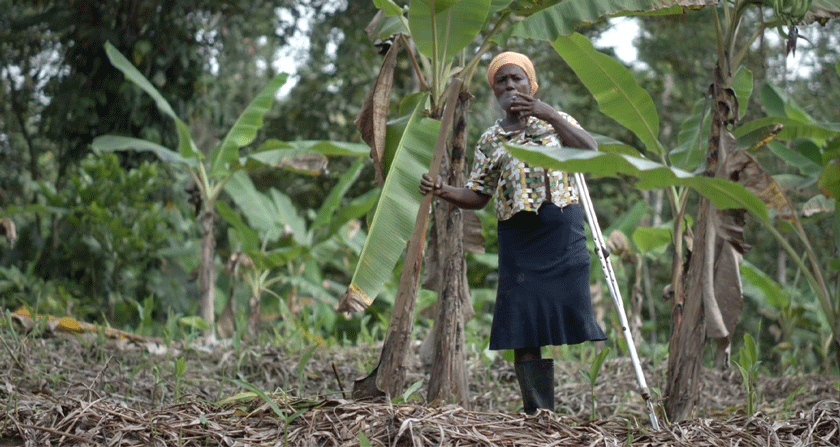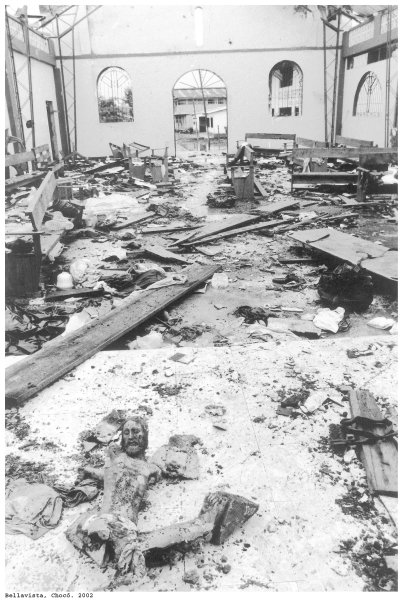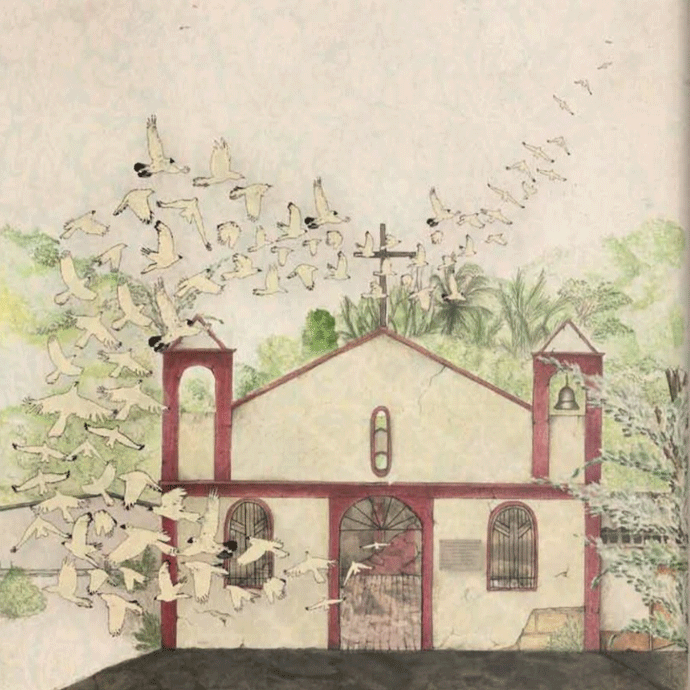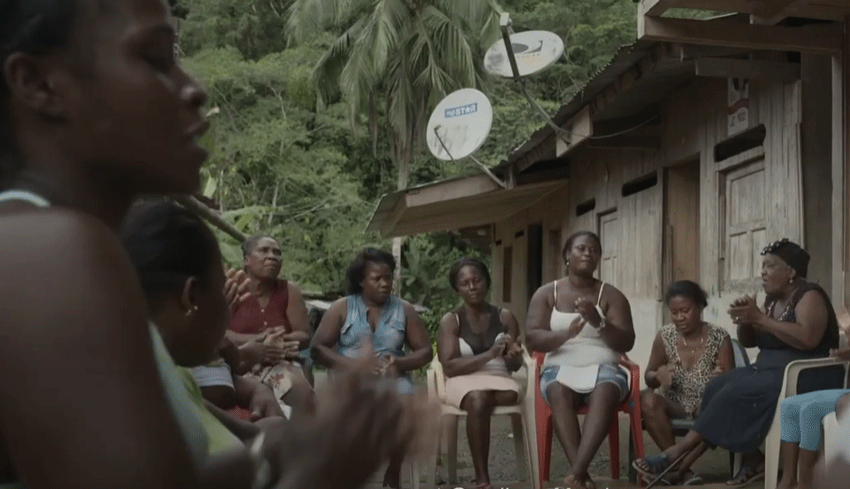How can the wounds left by a war be healed and overcome?
In the Chocó department, women say farewell to the deceased and wish them a good journey into the hereafter through songs that sound like prayers. These mortuary rituals are known in the Afro-Pacific Colombian communities as the Gualíes and Alabaos, practices declared in 2014 as Intangible Heritage of the Nation.
Songs that Flood the River is a documentary directed by Luckas Perro, a Colombian anthropologist, scriptwriter and audiovisual producer. It frames the life of an Afro-Colombian woman, Oneida, who resides in Pogue, a community in the municipality of Bojayá, Chocó, which is only accessible by plane or the Atrato River, in the jungle along Colombia's Pacific coast. She grew up singing Alabaos as a catharsis to relieve pain and resistance in a context of war, presented by the armed conflict in Colombia. This practice would later land her the position of alabadora of the war's dead.

Chocó is a moist forest considered one of the most biologically diverse regions in the world. However, this city has been ignored for centuries by the government and has become one of the main battlefields of armed conflict in the past three decades. Paramilitares-Autodefensas Unidas de Colombia (AUC), Fuerzas Armadas Revolucionarias de Colombia (FARC-EP) and ELN guerrillas, the Colombian army and different criminal groups have engaged in bloody confrontations in this territory.
Chocó’s strategic location has served as a corridor between the Atlantic and the Pacific oceans; meanwhile, its forest condition is used by illegal groups for trafficking drugs and arms, extracting natural resources such as gold and platinum, and cultivating coca crops. Of course, the population, especially Afro-Colombian people, have been severely affected, suffering massacres, forced recruitment, routine violence and displacement.
“Between 1985 and 2013, almost half the population of the Chocó was internally displaced, creating a humanitarian crisis of massive proportions.” (Departamento de Prosperidad Social, 2013).
There was one day when Oneida's history changed in Bojayá. La Masacre de Bojayá was a violent event due to armed clashes between FARC guerrillas and paramilitaries. A cylinder-bomb shot by the guerrillas exploded inside a church where there were adults and children, killing 119 civilians. The massacre triggered more than 6,000 peasants to abandon their land, leaving a significant moral, psychological and physical impact on the victims.


In this unfathomable moment, Oneida found the alabaos as a way for the community to share the pain. From this point on, she continuously sings to the river as it seeds in her the need to compose new alabaos to narrate what the animas of those fallen by war told her at night. In this way, she began to sing with other women, forming a sisterhood to help themselves and the community heal. So, Oneida would sing a line, and the other women would join in by singing it back to her in chorus.
“We sing because it’s tradition, we sing out of pain and I dream of writing joyful lyrics… But, once again the road turns dark, there are rumors of more war and I don’t know what to think,” says Oneida in one of the documentary’s scenes.
As portrayed by the journalist and photographer Jesus Abad Colorado in his documentary El Testigo, which registers the most emblematic photos of Colombia’s civil war during the last 25 years. Places and faces that remain a testimony of horror, but also of hope, forgiveness and reconciliation.
“Not everything can be war; during the war, there has to be something extraordinary that we value, that we feel is ours and that is not from war, because, even if we are inside it, we have a space that is not from the war. We have some stories outside the war that are ours and that in the midst of all this have remained and today we share.” (Woman’s testimony in Bojaya, June 2017)

The alabao nowadays represents not only a channel to give peace to the dead but also a way to remember, resist and ask for peace in Colombian territory. A musical and traditional practice that is aligned with the United Nations Sustainable Development Goal of Peace, Justice and Strong Institutions.
In order to maintain this long-standing custom that is now part of the nation's intangible heritage, Oneida and the other female singers wish to teach and transfer the value of the alabaos to the youngest. Due to this, a number of public and private organizations in the nation have banded together to support this cause and create a platform named after the documentary Cantos al río to display this woman’s knowledge and community anecdotes while acting as a donation site for the construction of La Casa del Canto, meaning in English “The House for Singing.”
This is a story of resilience that memorializes one of the longest wars in the world by recounting the memory of a woman. Songs that Flood the River is an artwork that brings together the voices of Afro-Colombian women to raise awareness of the unfathomable horrors of war and to plead for a peaceful solution that does not forget but forgives.
For more information, visit the page Cantos al río and we recommend watching the documentary El Testigo by Jesús Abad Colorado on Netflix. As for the documentary Songs that flood the River, it can be seen on the platform IMDB or on MUBI.
